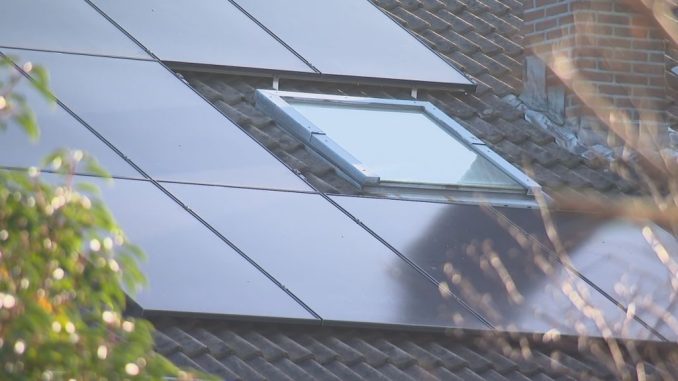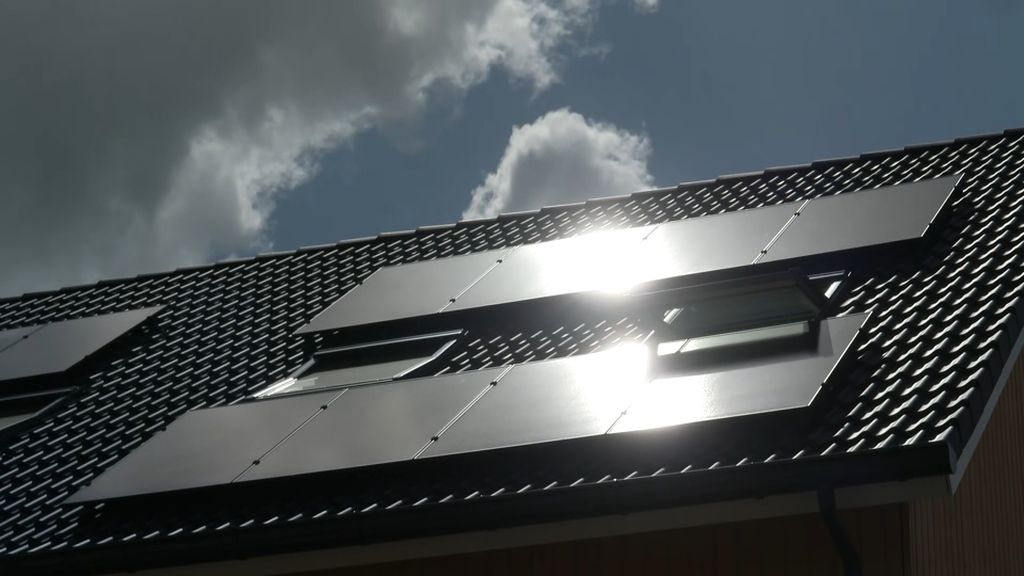
Energy companies start campaign: use generated solar power more yourself
Energy companies want to encourage customers to use generated solar power themselves much more. For this reason, the companies will sell electric boilers, batteries and timers for household appliances.
Currently, solar panel owners still get paid for the electricity supplied, but at the same time they pay for the electricity they purchase. The new cabinet has announced that this so-called netting scheme will disappear in 2027.
Netting means that households can deduct the energy they supply to the grid in a year from the energy they purchase, but this leads to additional costs for energy companies. If users use their own electricity immediately, it is cheaper for them.
It is unclear what the electricity supplied from 2027 will yield, but it will be much less than now. This does not mean that solar panels are no longer efficient, but it does mean that self-generated electricity must be used better.
Behavioral offensive
The energy companies want to radically change the behavior of customers with solar panels with their campaign. Now it makes no financial difference for them to produce a lot of electricity during the day and use little, and then to use a lot of electricity at times when the solar panels no longer produce anything, for example from the end of the afternoon and in the evening.
After the abolition of the netting scheme, this method of using electricity will cost solar panel owners money.
Not everyone is deterred by the abolition of the netting arrangement, such as the family of Dictus Benedictus in Drachten. He had 22 solar panels installed on his new house.

Make better use of self-generated electricity: ‘Excellent moment for washing machine’
According to energy companies, when the sun is shining, the washing machine and dishwasher should be turned on. People with an electric car should – if possible – charge them at home when solar panels are running at peak power.
Electric boilers can use the excess electricity to heat water for showering in the evening and morning. With a significant investment, a home battery could also be purchased to store electricity.
Home battery test
Eneco is starting a trial with which owners of such a home battery can even help balance the electricity grid. The energy company can then control that battery for a small fee to the customer.
Essent continues to encourage customers to buy solar panels, but to use the electricity themselves as much as possible.
Today Vattenfall is launching a campaign for the use of an electric solar boiler. “I don’t know of an easier way to use a significant part of your solar power yourself,” says Wouter Wolfswinkel, innovation manager at Vattenfall.
“An average home with ten panels on the roof can use about half of the electricity generated in the form of hot water.” According to Wolfswinkel, this is attractive because gas no longer needs to be used for hot shower water.
The Netherlands is the world champion of solar panels: no other country has so many per inhabitant. At the beginning of this year, just over a third of houses had solar panels on the roof. In two years, it is expected that about three-quarters of suitable houses will have solar panels.
However, the increase in the number of solar panels is currently leveling off, partly due to the announced abolition of the net metering scheme.
Fewer companies
The number of companies involved in solar panels has increased explosively in recent years to 3,285 at the beginning of this year. In the second quarter, this number fell for the first time, to 3,228, according to figures from the Chamber of Commerce.
Techniek Nederland attributes this to the “yo-yo policy of politics”. The trade association of installation companies fears more bankruptcies due to the disappearance of the fixed payment for the supply of electricity.
Solar panels now regularly provide a peak of sustainable power around noon, but that is not the time when households use the most power. This increasingly leads to negative electricity prices.
The current netting arrangement forces the energy company to provide ample compensation for electricity that is worth nothing at that time. The costs are divided among all customers, including those without solar panels.
New cabinet rules
To financially protect customers without panels, energy companies have started to charge customers with panels extra. That led to consternation in the House of Representatives. It is expected that the new cabinet will therefore not only abolish the netting scheme, but also draw up new rules for the compensation for supplying electricity to the grid.
What exactly these will look like will not become clear until September at the earliest, when the government presents the detailed plans.

Be the first to comment